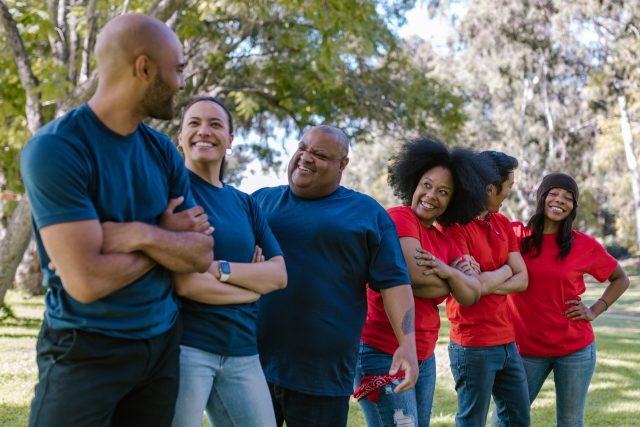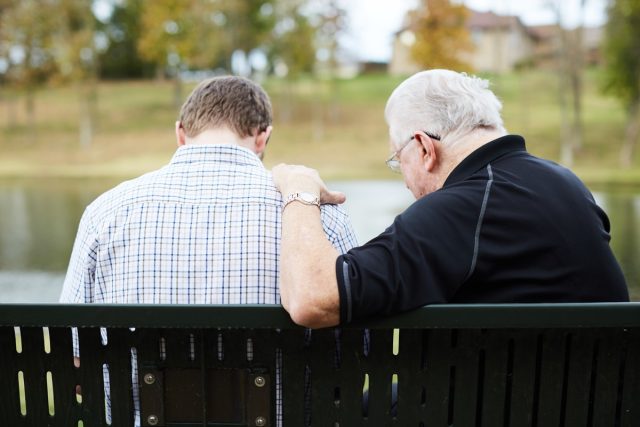Article
How to Know Your Community Well
Every neighborhood and city is unique, with its own distinctions and challenges. Each neighborhood also has specific opportunities for engaging the lost with the gospel and the community with good works in the name of Christ.

The goal of church planting is the fulfillment of the Great Commission. We are called to make disciples for the glory of Christ—everywhere. For the church to do this well, it will require intentionally engaging the lostness of our local communities. We can only engage the lostness of our community well if we know our community well. Every neighborhood and city is unique, with its own distinctions and challenges. Each neighborhood also has specific opportunities for engaging the lost with the gospel and the community with good works in the name of Christ. There is a rich history in your community that goes back decades before you arrived.
Whether you’ve grown up in the community or moved to that area to make disciples and plant a church, you must engage the city as a humble learner who is considered a local by those within the community. I’ve found it hard to bear fruit in engaging the city when locals consider you an outsider. I want to provide four goals and questions for you to consider that will help you make meaningful connections and lay deep roots in your context.
Join In
Answer: What are the local places that people like to gather?
I love to travel. I love the beauty of different cultures, neighborhoods, historic sites, and local food. Your neighborhood fits these criteria as well. In your community, there are local mom-and-pop shops that are unique to your setting. Many pastors and planters start by visiting local coffee shops, but I want to challenge you to go further.
Do you know the top ten places that locals like to eat or enjoy leisure—even if you don’t like these spots? Where are the places and streets where people like to hang out on the weekends? Even if you feel that you know the answers, there is always much more for you to learn. Scripture says that Paul was in “the marketplace every day” (Acts 17:17). If we want to engage the city, then we must regularly be where people are.
Seek the Blessing
Answer: Which local churches have been in the community for a significant amount of time?
In my 14 years as a missionary in Chicago, I’ve seen many church planters come through and share their vision for the new church that they are starting. The vision casting often begins with the dire news of how many churches are closing and how desperate the needs are in the city. While these statistics are often true, church planters can present the information as if God is not at work in the community. This can feel insulting to those who have served the Lord faithfully in the shadows. The articulation of the vision can give the impression that small, faithful churches haven’t been doing good work on the ground for decades. I made this mistake myself and was corrected by a godly saint early on. These churches may not have their names in bright lights, but they have been a bright light in the community for decades. You must know who they are, seek out their counsel, and desire their blessings on your work. Whether you realize it or not, you are partnering with them in the proclamation of the gospel in the city. There is much that you can learn from them. They know the community well and have seen the challenges and changes throughout the years. They have been where you are. How many of these local churches have you met with for coffee? Your encouragement to them can go a long way.
Potential Partners
Answer: What local organizations are in the area?
Almost every local community has both secular and Christian organizations in the neighborhood. It is good for you to know who they are and get to know as many of the leaders and directors as you can. The main reason for your connection with them is that they have daily access to lost people. Your primary goal as a missionary or church on mission is to reach the lost with the gospel of Jesus Christ and to disciple them. There is no better place to look and get familiar with than local community organizations. YMCAs, substance abuse centers, crisis pregnancy centers, organizations that help with housing, police and fire stations, and places that offer ESL classes may all be helpful connection points for you to make.
Gain Awareness
Answer: Who are the key voices in the neighborhood?
Every city, community, and neighborhood has a few key voices that the locals respect. This may be a political leader, a community leader, a school board, a local pastor, or a respected neighbor. You may or may not agree with these voices, but you should be aware of who they are. They have the ears of the locals in the community that you are seeking to reach with the gospel. They have influence over them, for good or for bad.
When I came to the West Side of Chicago, I quickly realized that there were a few pastoral voices and political leaders whose voices held weight in the community. It would be hard for me to engage my community as a newcomer without their blessings. I didn’t agree with their theology or approach to many issues, but in humility, I had to be aware of them and wisely consider how to work with them for the good of the city.
How Will You Engage?
To engage your city well, you will need to know your city well. This means knowing the local places that people like to eat and gather for leisure. You will need to know and connect with the churches that have been serving faithfully for decades in the shadows. You will have to know who the local organizations are, along with the leading voices in the area. None of this will happen overnight. It took me about 10 years to fully get a grasp on my community, and I still have much more to learn. If you start with these four areas and give them time, you will bear much fruit. So, church planter, how will you engage your city with the gospel? Where will you begin?




